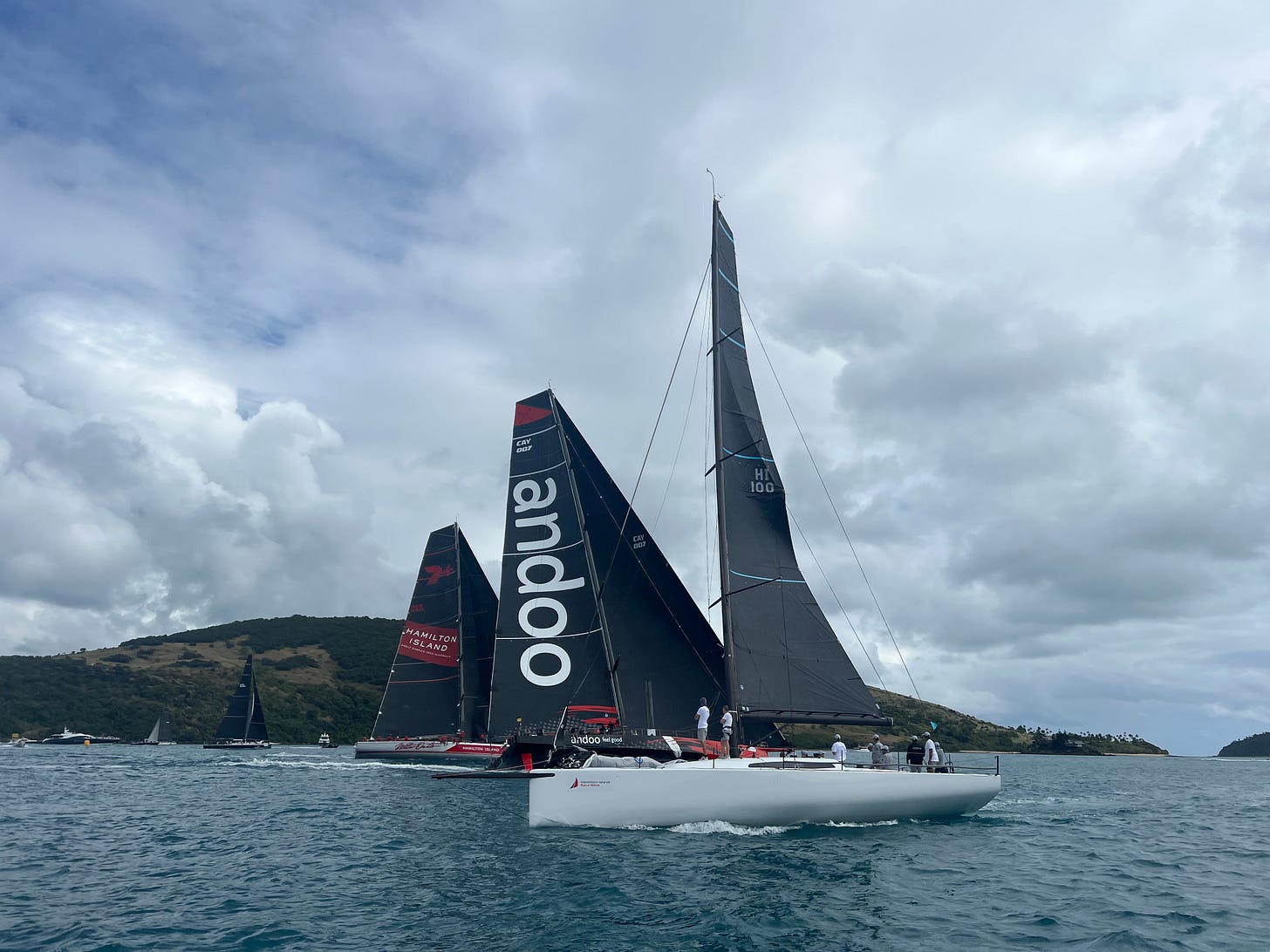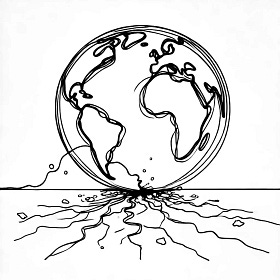Float or Focus
Float through change. Or, focus and move with strategic intent.
Before setting sail, any good skipper runs internal checks: engine on, oil pressure steady, bilge pumps working, instruments calibrated, hatches sealed. Earlier prep includes checking fuel levels, stowing food and water, charging radios, updating first aid, and confirming the float plan.
Yet no internal prep is complete without checking external forces. Weather - current and forecast. Tides and swell. Charts updated. AIS traffic showing shipping lanes, cargo vessels, or regatta schedules. Safety zones around naval exercises. Coastal warnings. If strong winds are expected, you might put in a reef - reducing the sail area to stabilise the boat in heavy weather.
Then comes the crew briefing. Everyone knows their role. The plan adjusts to the forecast. You’re ready.
Moments after the start. Hamilton Island Race Week. When precision, preparation, and timing converge at sea.
And yet, no matter how thorough the internal prep, external forces often hold more power.
The 1998 Sydney to Hobart Yacht Race proved that. Despite world-class yachts and experienced crews, unexpected weather systems hit hard. Six sailors died. Some boats sank. Conditions changed quickly. Not all were prepared.
In the 2024 Sydney to Hobart Race, it happened again. Two more lives lost.
This mirrors the business world in 2025.
External conditions have shifted fast.
The global trade war reignited by Trump’s tariffs.
AI accelerating faster than most boardrooms can grasp.
New cost and complexity in international supply chains.
Ongoing wars, including in Europe and the Middle East.
Climate volatility.
Global debt and borrowing costs at record highs.
Geopolitical alliances reshaping.
And still, many organisations remain tethered to internal metrics - what’s happening in the boardroom, within the industry, within the city, within the country.
In business, there’s often perceived safety in being the big boat in a small pond.
But the pond no longer exists. It’s overflowing - flooded by global trends, technologies, threats, and opportunities. We’re all in the ocean now.
And in an ocean-sized system, some of the world’s biggest and fastest boats are already moving. If you’re fixated on internal dashboards, you won’t see them coming. Or worse - you’ll miss the opportunity to draft off their wake or sail a smarter course.
Internal focus creates blind spots.
External fixation without integration leads to drift.
It’s hard to expand your view and align internal priorities at the same time.
That’s where a short space to Untether is most valuable.
To step back and see more.
To make sense of the signals.
To shift with clarity and relevance.
Because when you see more,
you do more,
and you bring others with you - your crew, your teams, your stakeholders.
That’s how we go further, faster, together.
Freedom Before Fracture
Untethering restores autonomy and agency - personally and organisationally. And often, the smarter move is to untether before you’re forced to walk away.
To question place, precedent, and perception.To cut through controls, constructs, and conditions.To see clearly. To move freely.
Untethering comes before scenario planning. Before strategic foresight.It creates space to think - before setting adaptive strategy.
Altitude: Zooming Out to Zero In
It takes courage to climb the mast. On a racing yacht at sea, not everyone does it. Many will look up. Fewer will act. And only one will strap in, climb high, and do what needs to be done. They’ll face the force of wind, the motion of the boat, and the pressure of knowing what’s at stake.
From that height, the view shifts. It is about fixing a problem. And, it’s about getting back on course. Making the finish. Making it safely home.
And up there, perspective changes.
From above, patterns emerge. You can see the set of the sails, the angle of the hull, the conditions unfolding ahead. You can see the whole system in motion. Distractions fall away. The bigger picture becomes clear.
In business, altitude matters.
Avoid Being Tethered
Einstein would spend hours alone at sea, letting himself float aimlessly. To an outsider, it may have looked like inactivity. Yet, it was valuable work - creating the space for ideas to surface, for the mind to roam freely and reorganise what it already knew into something new. A friend once said, “To Einstein, this could simply provide more time to think.”
Today, in a world that is more complex, interconnected, and volatile than many of us have previously experienced, we benefit from the same.
Not more noise. Not more effort.
More space. Space to think bigger. To connect differently. To move smarter. To see what others miss, and to act before others react.
This is the essence of being Untethered.






